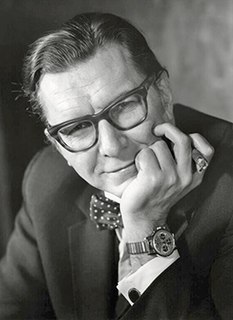A Quote by Friedrich Nietzsche
Compulsion precedes morality, indeed morality itself is compulsion for a time, to which one submits for the avoidance of pain.
Related Quotes
The hypothesis I wish to advance is thatthe language of morality is ingrave disorder.... What we possess, if this is true, are the fragments of a conceptual scheme, parts of which now lack those contexts from which their significance derived. We possess indeed simulacra of morality, we continue to use many of the key expressions. But we have--very largely if not entirely--lost our comprehension, both theoretical and practical, of morality.
There are three things we have to let go of. The first is the compulsion to be successful. Second, is the compulsion to be right-especially theologically right. (That's merely an ego trip, and because of this "need" churches split in half, with both parties prisoners of their own egos.) Finally, there is the compulsion to be powerful, to have everything under control.
One should not understand this compulsion to construct concepts, species, forms, purposes, laws ('a world of identical cases') as if they enabled us to fix the real world; but as a compulsion to arrange a world for ourselves in which our existence is made possible:-we thereby create a world which is calculable, simplified, comprehensible, etc., for us.






































